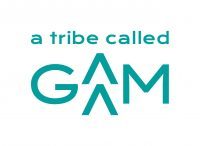Agility, Holacracy, Sociocracy, adaptive governance are only some of the possible options to have in mind if you want to unchain the operational system of your organization from the rigidity of a top-down, command and control management culture.
The idea of self-management whereby certain management functions such as work organization, planning, information and decisions flow, control move from one person known as the manager to all team members – starts passing from early adopters to early majority.
In a self-managed organization instead of having just a few people deciding what and how things need to be done for the benefit of the organization and its people, each autonomous member is acting like a sensor ready to capture risks and opportunities and process information into a relevant action at its level.
Even the most reluctant and conservative of us share the idea that more minds and hearts fully contributing to a common goal, produce more impact than a centralized authority.
Studies also show that better results occur where people are motivated. Psychologists teach us that two important factors of motivation are autonomy (self-determination) and contribution to a purpose that makes sense for us. These are at the heart of self-management.
Therefore, self-management appears like a logical thing to embrace : not only it is a more adapted way of dealing with the complexity and uncertainty that we face today but it also fosters motivation and engagement.
However, the path to switch to self-management is yet far more demanding than people often think. If you intend to switch to a decentralized management structure, here are three ideas you should take into account in order to avoid disillusions:
Don’t expect the silver bullet
When you train for a marathon, having the best pair of running shoes is a must but it will not be enough to get you to the finish line. It won’t prevent you from training hard daily, to adjust your lifestyle and to strengthen your will.
Self-management, once well implemented, will streamline and accelerate decision-making, unlock initiatives, facilitate a better capture of business opportunities and risks, bring more clarity to roles and areas of authority, it will make it easier to express each teammates’ potential and overall will increase the level of maturity in the organization.
But don’t expect this operating system to be the magic wand for all other malfunctions in your organization. Self-management won’t be the answer to a poor product, the lack of skills, outdated infrastructures or any operational issues.
It won’t either solve overnight the lack of trust between team members, the fear of failure, the fear of being blamed, the structural lack of transparency, the need for excessive control or the lack of meaning and vision. You’ll still need to address these topics with meaningful training and coaching.
Name your losses
Irvin D. yalow wrote : “If you want to choose the pleasure of growth, prepare yourself for some pain”.
We observed in our practice that the conversation about losses is not an easy one. It’s often avoided whether because we’re too excited about the change we decide to make and we’re totally seduced by the promise of a bright future, whether because deep inside us, we know that this conversation might be a painful one … or sometimes both.
Imagine you’re about to accept a long-expected promotion that comes with a great pay raise, new challenges and international responsibilities. As exciting as this opportunity might be, it will necessarily come with renunciations : the comfort of a well-known job, well-established relationships and synergies and maybe some quality time with your family or friends.
The people engaged in this organizational change might experience the initiative as a threat to something they value. What they value might be some deeply held belief about right and wrong or about the way the world works or should work. Or it may be nothing deeper than a desire to maintain what is stable, predictable and familiar in their lives.
Self-management might push the manager’s fear button of losing their identity, reputation, power, money, status, control, righteousness, competence or even their jobs.
Resistance to change stems from a fear of losing something important for us. So, it is crucial to identify those potential losses and then help people to survive them.
Grow adulthood
Self-management is not so much about choosing the right methodology than it is about enabling adulthood.
Traditional and hierarchical organizations have created a parent/child relational pattern. Managers are expected to be hero-leaders: to provide directions, to manage conflicts, to have all answers, to protect their people in the same way as parents we provide, manage and protect our children.
All these are noble feelings but how adequate are they in the work field where we’re supposed to be all adults?
Important questions might rise while you experience self-management: what do I need? What is really important for me now? What am I ready to let go and what not? To what values am I loyal?
Introspection becomes an important part of the organization’s adulthood journey and you’ll need to make some room for it.

